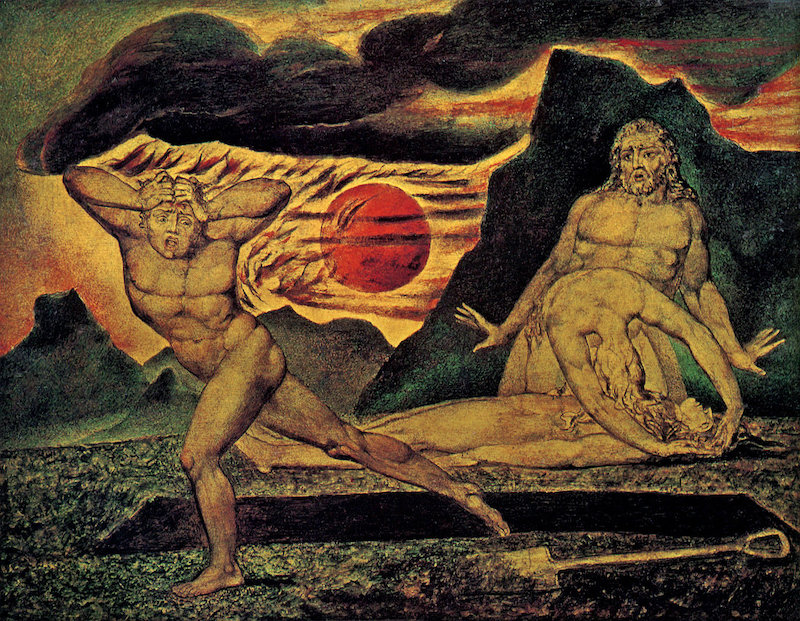
Postmodern Religion and the Faith of Social Justice
This Areo Magazine essay by James Lindsay provides the perfect companion piece to many other essays showcased on this site. In it, he explores the almost-religious nature of the institutionalized movement of Social Justice Ideology (SJI), along with its rituals for salvation (soteriology), epistemic claims about all of social reality, and its pursuit of institutional power. Although an increasing number of writers and thinkers have begun to grapple with the real-world impact of postmodernist philosophy and with the postmodernist foundations of SJI, few have tackled the issues involved in “applied postmodernism” in the way that Lindsay has. Of all the pieces included in this collection of proposed canonical works, this one builds the strongest case for a Social Justice Evolution.
As this particular essay attempts to analyze SJI comprehensively, the following seven articles – also from Areo Magazine – can serve as extensions and further elaboration on several of the themes touched on in James Lindsay’s piece.
Teaching to Transgress: Rage and Entitlement at Evergreen College
This essay offers a breakdown description of the specific beliefs and practices that led to the racially charged implosion of Evergreen State College in the Spring of 2017. It was written as an entry point to the disturbing and documentary series on these events by Mike Nayna.
My Apostasy from the Church of Critical Theory
This essay provides insight into the main ideological assumptions about human beings and all of reality that are taught in today’s higher ed institutions. In a highly dogmatic way, the author explains critical theory, critical race theory (a branch of it) and other deconstructionist theories that are inculcated into students as the only way to analyze the world and its systems.
What Thomas Sowell Taught Me About Being a Dissident Feminist
This essay explores the ways in which the more dogmatic variety of social justice activism punishes and demonizes those whose ideas and discoveries do not conform to the ideologically pure version of SJI.
The Progressive Case Against White Privilege
This essay begins with the following statements: “The arguments against the existence of white privilege are stereotypically represented as originating primarily from right-wingers and grounded in conservative notions about American meritocracy. But there is a stronger argument against the concept, which comes from the very philosophical tradition that its supporters claim as their intellectual heritage… White privilege is a flawed paradigm, which ascribes racism to a process which does not contain it. But, more importantly, it’s an ultimately self-defeating notion, which negates some of the most fundamental principles of equality and human rights.” This opening statement echoes the insights discovered in a recent study published in Greater Good Magazine, which found that whites who have embraced the concept of white privilege developed a marked drop in empathy for poor Whites while experiencing no change in how they felt towards the plight of People of Color.
The Epistemological Problem of White Fragility Theory
This essay along with a follow-up Areo essay on the proselytization aspect of White Fragility Theory in practice examines the dogmatic assumptions behind “fragility theory” and how it distorts conversations about bigotry and undermines relationships between demographic groups. A major insight is that this theory pre-supposes the secret inner thoughts and feelings of individuals who belong to out-of-favor groups, which sets up a dynamic in which those who belong to “marginalized” groups can claim moral superiority based on the presuppositions.
Racism Does Not Equal Prejudice Plus Power
This essay describes the history of this designed equation, which was originally set up in the 1970’s as a political tactic to reverse perceived power differentials between different demographic groups (originally the white population). The idea was that by making bigoted “isms” only possible for people who are said to be in power, those who are perceived to be out of power are then free to be as hostile and power-seeking as they wanted, as long as they are “punching up” against “the oppressor”. For an academic-style video treatment of this argument, click here.
The Evolution of Black Heterodox Thought
This essay by Samuel Kronen was written about the changing conversation in the Black community. In it, he explores the emerging influence of several Black intellectuals and moral philosophers, including Glenn Loury, Professor of the social sciences and economics at Brown University and host of The Glenn Show @ bloggingheads.tv., John McWhorter, linguistics professor at Columbia University, Coleman Hughes, author at Quillette Magazine, Thomas Chatterton Williams, author of “Losing My Cool”, and others.